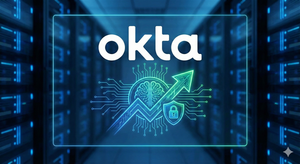We accept that bots will flood a ticket sale, that our personal data may be exposed through a malicious app, and that we must constantly be on guard for online scams.
As promised in my previously released press releases, I want to continually discuss with you Netverse and its groundbreaking technology as a direct and better option than the technology we all use today. As CEO, I believe the reactive model of today's technology and app stores is fundamentally broken. It places the burden of security on the user, asking you to navigate a digital world where trust is earned only after a threat has been neutralized. This is not how we should be building the future.
This is why I Invented Netverse. My philosophy is simple: prevention is better than cure. Through Phinge, we are fundamentally changing the narrative from a reactive one, where we chase down bad actors, to a proactive one, where we don't let them in the door. By designing an ecosystem that prioritizes verified identity and foundational security from the very start, we can restore genuine trust and safety to the digital landscape. This isn't just about protecting our platform; it's about empowering our users, businesses and third-party platforms with the confidence that they are operating in a secure, transparent, and trustworthy environment.
Phinge's Netverse aims to create a secure ecosystem through a proactive, preventative security model, which contrasts sharply with the reactive security approach used by current app stores, third-party and social media platforms. Netverse seeks to eliminate common threats by verifying all users, businesses, third-party platforms, organizations, entities and intellectual property(IP) from the start, rather than responding to them after they have already occurred.
Proactive vs. reactive safety: Core concepts
| Phinge Netverse (Proactive) | App Store Model (Reactive) | |
| Philosophy | Assumes users and businesses are trustworthy only after they have been explicitly verified. It seeks to prevent bad actors from entering the ecosystem in the first place. | Assumes new users and apps are benign until proven malicious. It reacts by addressing vulnerabilities, removing malicious apps, or taking down fake accounts after they have caused harm. |
| Control | A secure, verified ecosystem. The ecosystem, its participants, and the transactions are all controlled and authenticated by Phinge's Netverse and hardware-verification system. | An open, fragmented ecosystem. App stores and social platforms are dependent on third-party security software and constantly release patches to address new threats. |
| Technology | Hardware-based authentication: Users must register through a proprietary Phinge device, which binds a single, authenticated user to their actions and data. Integrated codebase: The "app-less" model eliminates malware and exploits by removing the vector of third-party apps. Verified ecosystem: Every user and business is verified before entering and participating. | Software-based authentication: Relies on passwords, two-factor authentication, and app approvals to manage trust, all of which have known vulnerabilities. Fragmented app model: Third-party apps from numerous developers create a wide surface for cyberattacks, like malware, zero-day exploits, and ransomware. |
Side-by-side examples
| Phinge Netverse (Proactive) | App Store Model (Reactive) | |
| Fake accounts and bot attacks | Prevention: Phinge requires hardware-based verification at signup, eliminating the ability for bots to create accounts in the first place. Example: An event ticket platform built on Netverse could require all buyers to be verified users. Bots would be unable to enter the system and hoard tickets, effectively eliminating scalping. | Reaction: Social media and third-party platforms manually take down fake accounts and bots after they are reported or identified by algorithms. Example: On ticket seller platforms, bots exploit security loopholes to buy large quantities of tickets. They must then investigate and cancel fraudulent purchases after the fact. |
| Malware and app vulnerabilities | Prevention: Netverse's "app-less" model will run from a single, integrated codebase. Third-party programs cannot be installed, removing the primary channel for malware and ransomware attacks. Example: A user would not be able to download a malicious program that steals their credentials because the option will not exist. The Netverse ecosystem is inherently free of this threat vector. | Reaction: App stores frequently discover and remove malicious apps. Software updates, patches, and antivirus programs are regularly deployed to combat threats as they emerge. Example: When a new vulnerability is found in an app, the developer or the app store must issue an update. Users remain vulnerable until they install the patch. |
| Brand and identity fraud | Prevention: Netverse will require that all businesses, brands, third-party developers and their IP be verified and linked to a real user. This prevents fraudsters from creating fake pages or storefronts. Example: A fraudulent company or individual cannot create an imposter identity or storefront on Netverse to sell counterfeit goods because the platform would verify the brand's legal ownership. | Reaction: Social media platforms and major e-commerce platforms rely on user reports and after-the-fact investigations to take down fake brands and fraudulent sellers. This can be slow, allowing scams to operate for a time costing users and businesses money. Example: Fraudsters create a fake storefront on a e-commerce platform and sell counterfeit products. The platform only acts after receiving a report, allowing the fraud to occur in the interim. |
The side-by-side comparison presented here highlights the stark difference between our proactive approach and the traditional reactive model of app stores, third-party and social platforms and today's technology architecture.
Where current technology and all that use it, must constantly patch vulnerabilities and chase down fake accounts after they've already caused harm, Netverse's core design will eliminate these threats from the outset.
Our patented hardware-based authentication-verification and patented "app-less" integrated codebase will create a robust perimeter that bad actors simply cannot breach. Whether preventing bot attacks from scalping tickets or stopping brand and identity fraud before it happens, Netverse will provide a level of security that reactionary systems and today's security applications and technology architecture cannot match.
We believe that this shift-from assuming trust to verifying it, is the only path forward for a truly safe and equitable digital future. We are building Netverse to deliver on that promise, giving power back to the user and building a platform where trust is no longer a luxury, but a reality.
I hope you will join us to make the world safer for everyone.
I look forward to having continued dialogue and discussions with all of you as we move forward in bringing Netverse to you.
I appreciate your time as always.
Robert DeMaio
President and CEO
Phinge Corporation
You may learn more about Netverse and its patented, magnetically attachable smartphones and devices by visiting Phinge's websites at
https://www.phinge.com
To get on a contact list please fill out the online form here
https://www.phinge.com/netverseai.html
About Phinge Corporation
Phinge was founded and through Netverse® is being developed to disrupt today's outdated App technologies, including the App-store duopoly, by partnering with and giving its users and businesses ownership and control of their data, enhanced privacy and a better overall mobile experience including their ability to monetize it.
Phinge through its upcoming patented Netverse App-less technology platform with proprietary AI, will be a better, safer, verified and rewarding alternative platform and technology for users and third party businesses and developers to today's App stores, operating systems and ecosystems of Apple, Google and Android.
Netverse will not be an App or Super App that resides on the major technology platforms of today.
Instead, it will be a standalone, all-in-one, app-less platform, accessible only through Phinge's revolutionary, patented, Mobile Hardware which includes Magnetically Attachable/Detachable Phones, Tablets, Mobile Gaming Systems and peripherals like the stylish, wireless earbuds with interchangeable batteries and built-in sensor screens for continuous usage without recharging and Smart Watches that never need to be charged as they come with stylish external, interchangeable bezels with built-in rechargeable batteries and come in a variety of colors, patterns and finishes.
Netverse will be a verified, centralized-decentralized platform.
Centralized in the way it provides universal safeguards through verification of all users, businesses, organizations, entities and IP through Phinge's patented Netverse technologies and hardware.
Centralized because Phinge and Netverse will be compliant with all government regulations regarding data and privacy.
Decentralized because all third party platforms will be compliant with all government regulations regarding data and privacy as soon as they are verified and join Netverse.
Decentralized because its users, businesses, organizations and entities will have the power to live, work and thrive in a verified world.
Netverse will benefit all verified users and approved, verified third party businesses, developers and platforms on Netverse in ways not possible with today's technology including total verification of all users, businesses, organizations, platforms and entities.
Photos: (Click photo to enlarge)




Source: Phinge Corporation
Read Full Story - Phinge CEO Explains the Benefits of Netverse Being Proactive Versus the Reactionary Technology of Today: Our Unwavering Commitment to Security & Trust | More news from this source
Press release distribution by PRLog





